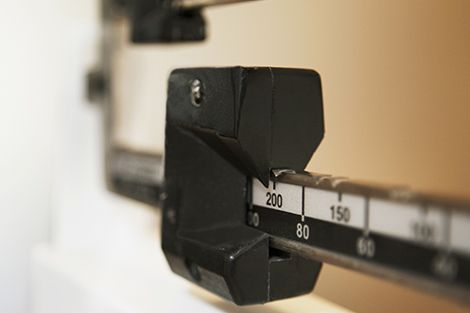What is the most effective way to lose weight?
POSTED February 9, 2023
Did you know that 41.9 percent of all adults in the United States are obese? According to the CDC, “From 1999 –2000 through 2017 –March 2020, US obesity prevalence increased from 30.5% to 41.9%. During the same time, the prevalence of severe obesity increased from 4.7% to 9.2%.” With that alarming information dietitians came up with the idea of intermittent fasting, but diets tend to raise a lot of questions. What is intermittent fasting? What are the different methods of intermittent fasting? Is it dangerous? How long does it take your body to get used to this form of diet? Finally, how can this diet be paired with exercise?
What is intermittent fasting?
In 2012 the diet called “the intermittent diet” became popular, but how does it work? According to Mayo Clinic, “ Intermittent fasting means that you don’t eat for a period of time each day or week.” Most dieticians agree the only way to lose weight is to be in a caloric deficit. One way to find a caloric deficit is to search an online website for your height weight and your activity level. After that, you will find your maintenance calories which are how many calories you need to maintain your current weight. One way that intermittent fasting works into the weight loss process is that you take a meal or a time to eat out of the day. As result, your total calories should be lower as long as you are eating the same amount that you usually are except without that certain time period.
What are the different methods of intermittent fasting?
The way that intermittent fasting can be done in different ways can be more beneficial and also dangerous at the same time. One of the ways is the five two methods and according to Hopkins medicine, it says “ the 5:2 approach, involves eating regularly five days a week. For the other two days, you limit yourself to one 500–600 calorie meal.” This method is a slow and steady weight loss because you only limit yourself to two days of fasting. Another method is called the eight-sixteen method Hopkins Medicine says “Dietician, Christie Williams also stresses that before you try intermittent fasting (or any diet), you should check in with your primary care practitioner first. Some people who should steer clear of trying intermittent fasting are children and teens under age 18. Women who are pregnant or breastfeeding. People with diabetes or blood sugar problems.Those with a history of eating disorders.”
Is intermittent fasting dangerous?
Methods of this may be good but there are also bad methods of intermittent fasting. Some people take it to the extreme by fasting for 24, 48, and even 72 hours at a time. Hopkins medicine says “ Going too long without eating might actually encourage your body to start storing more fat in response to starvation.” The serious dangers according to the center for discovery “Yes, it is possible to lose calories, fat, and weight from this popular diet. However, it is also possible to quickly gain the weight back, develop low energy stores which can result in a depressed mood, have problems sleeping, and even develop organ damage if the fasting is extreme. The main way to avoid these dangers is to take your time and not have the calorie loss be so extreme.
How long does it take your body to get used to intermittent fasting and how sustainable is it?
Hopkins Medicine says “Mattson’s research shows that it can take two to four weeks before the body becomes accustomed to intermittent fasting. You might feel hungry or cranky while you’re getting used to the new routine. But, he observes, research subjects who make it through the adjustment period tend to stick with the plan, because they notice they feel better.” The sustainability of intermittent fasting is questionable depending on the lifestyle you have. The most sustainable method is the 16/8 method which most people have found easily sustainable. The hardest part is if you live a very active lifestyle and work out more than 3 days a week you will need more calories to maintain your weight.
How can intermittent fasting be paired with exercise?
Most dietitians say as we exercise we burn calories which in turn increase the number of calories we can have to lose weight. If we cut a meal out of the day and exercise the amount of food that we can have when we are hungry especially after we work out according to Acefitness they say “ You’re supposed to be hungry after you work out. Exercise burns calories use up your glycogen stores and stimulate your appetite. It also dehydrates you and if you don’t drink enough water before, during, and after your workout, you’re going to feel hungry.” If you plan out your meal times and your exercise hours around those times you should find success in losing weight. This doesn’t mean that you can stay on this diet and find success because not eating enough calories will cause your body to keep the fat that you have. Just make sure to find a healthy balance between the two to lose weight in a healthy way.
https://www.cdc.gov/obesity/data/adult.html
https://www.shemazing.net/intermittent-fasting-the-facts/
